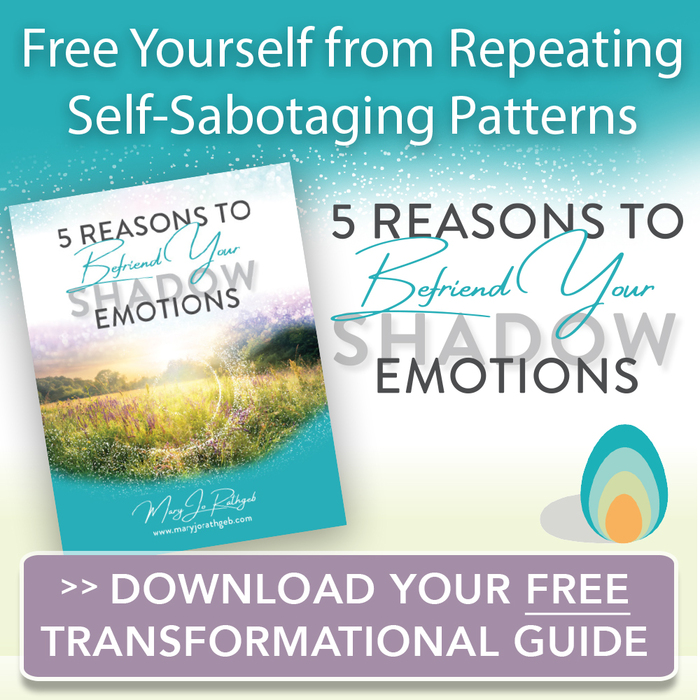
Oh, money! You tend to love it or hate it. Or you tend to love to love it, love to hate it, hate to love it or hate to hate it! There are so many emotions stirred up by money that it is rare to find someone who is truly neutral about it. So why is money so charged with emotions? It’s because it is tied to your sense of safety and security, and many of your beliefs about money were formed in childhood through your family of origin, past experiences, your culture, and the society you grew up in, and more. These beliefs may not even be conscious! They are so ingrained that you likely accept them without question.
Whenever you are in a transition point in your life or business, money fears are bound to come up. It’s completely normal. Why? It’s normal because times of transition are times of uncertainty. They are times of leaving behind the familiar and stepping into the unknown. This triggers your fears of safety and survival, and your nervous system automatically reacts to perceptions of danger or threat as responses of fight, flight, freeze or fawn.
Here’s an overview of how fear may show up for you:
- Fight: If it’s fight, you will tend to get angry and blame other people or outside situations for your fears. You may blame your partner or spouse for their spending habits while leaving your own unexamined. You may blame your boss for not promoting you or giving you a raise. You might even rail against society or the economy and use them as excuses for why you struggle to make ends meet, or never seem to have enough money for the things you want to do. If you do have enough money, you may fear losing it and hold on tightly, fighting to hold onto every dime, penny pinching when it isn’t necessary.
- Flight: If your response is flight, you will avoid dealing with your money issues, and may create more problems than you solve. This might look like a stack of unopened, unpaid bills that might be shoved in a drawer to you don’t have to look at them. It could also be never looking at your account balances or credit card statements. The key here is not looking at or acknowledging the things that are undealt with due to the fear. This type of avoidance takes a lot of energy!
- Fawn: This is a lesser known or talked about response. With fawn, your learned response is to caretake or people please. You will likely give more than you have, accept less than you deserve and/or try to buy approval or love through people-pleasing, caretaking, and being overly responsible. This might show up as overspending on gifts and things for other people, undercharging for the true value of your services, or being unable to receive support and resources that would help you.
- Freeze: If it’s freeze, you will be unable to take any action to address the fears constructively. There’s a part of you that feels this threat so acutely, you think you may die, or be homeless, or both. You may feel overwhelmed. You may be distracted and unable to focus when you decide to sit down and get a handle on your finances. You may feel disconnected from yourself or feel tired and decide to take a nap or numb out instead of focusing on the task at hand.
If you recognize yourself in any of these behaviors, you are not alone. What’s more, it’s not your fault. You are hard-wired to have these unconscious responses. However, it doesn’t mean you are helpless. In fact, the best way to handle these fears is to turn toward them. To understand and befriend them. Make them conscious. You may have heard of Carl Jung’s famous quote, “Until you make the unconscious conscious, it will rule your life and you will call it fate.”
Here are 4 steps to help you begin to befriend your fears:
- Notice your triggers: By the time you notice any of the above behaviors, you are already triggered. So, it is time to stop and reverse engineer what is going on. Start by acknowledging what state you are in. Is it Flight or Flight, which is a state of mobilization, or Freeze, which is a state of immobilization. Fawn is a blend of the two. Once you know what state you are in, you can get curious about it.
- Get curious: What was happening right before you noticed your trigger? How are feeling in this moment? What are you sensing in your body? What are your thoughts? Emotions? Notice them and breath with them. Jot them down or journal about them. Get to know the pattern.
- Be compassionate: Instead of judging yourself for having those thoughts and feelings, be compassionate and release the impulse to blame or shame yourself or anyone else. Instead ask, what is the positive intent of this state? (Spoiler alert – it’s to keep you safe!). Assess whether the level of danger or threat you feel matches the situation. Then, ask what is a more effective way to handle this situation?
- Ask for support: You don’t have to do this alone. In fact, having support and outside resources can help you regulate your nervous system, so you’ll get triggered less often, catch it faster, and have more tools to work through it.
Once your fears and triggers become conscious, you can then begin to work with them instead of against them. They have been with you for a long time, and they will continue to be with you, but how you respond to them can change. By facing your money fears, you will gain a sense of agency, and bring them along as allies in your transition. I invite you to schedule a complimentary 30-minute “Befriend Your Money Emotions” call.



